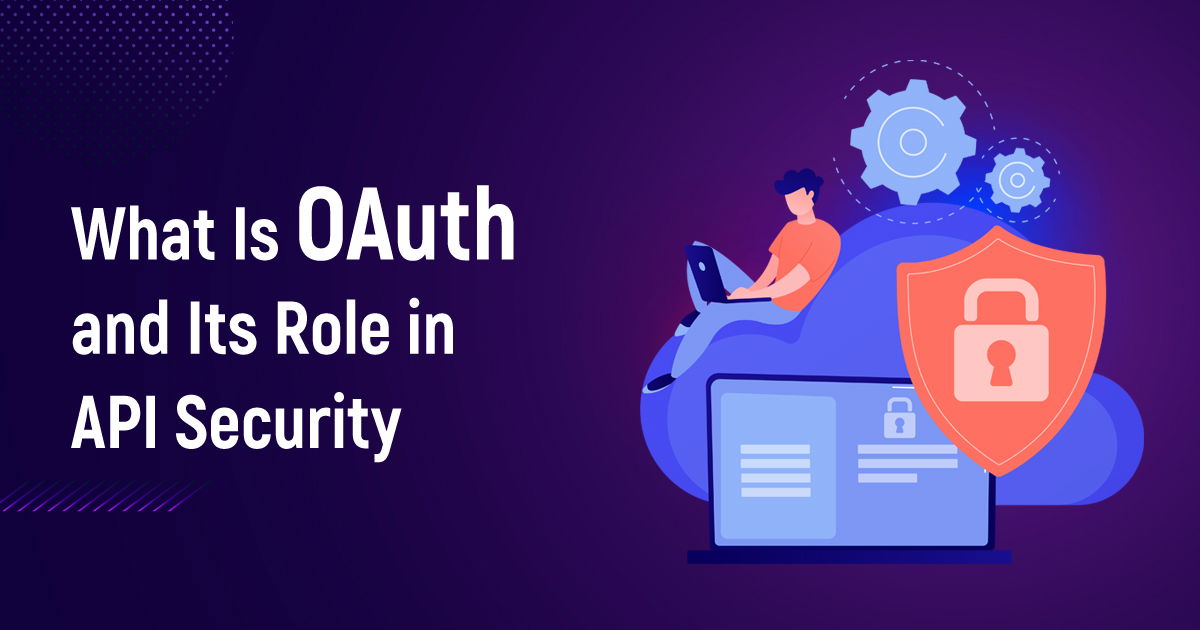In today’s interconnected digital ecosystems, it is important to secure APIs to protect sensitive data and ensure integrity of communication between systems Systems widely used to create One of the safeguards of APIs is OAuth. But what exactly is OAuth, and how does it contribute to API security? In this blog, we’ll explore the basics of OAuth, its core features, its role in API security, and best practices for using it effectively.
What Is OAuth and Why Is It Important?
OAuth (Open Authorization) is an open authorization standard, typically used to provide limited access to user information about websites or applications, without showing their credentials. But why is OAuth so important for modern applications?
OAuth can allow users to access their information from third-party services without password sharing, greatly reducing the risk of credential theft This is especially important in environments where multiple services need to communicate, such as social media planning, budgeting, and enterprise planning.
How Does OAuth Work in Securing APIs?
To understand how the OAuth API enhances security, it’s important to understand the basics of its business. OAuth works by using tokens instead of passwords. But how does this process really work?
-
User Authorization: The user grants the application access to specific resources.
-
Token Issuance: The application requests an access token from the authorization server.
-
Token Usage: The application uses access tokens to access the resource server's user resources.
This token-based approach reduces the need to share sensitive credentials and restricts access to only those resources authorized by the user, thus increasing security.
What Are the Key Components of OAuth?
The OAuth framework has several key components that work together to secure the API access. But what are these combinations and how do they work?
-
Resource Owner: The user who owns the data or resource.
-
Client: An application that requests access to an object on behalf of a user.
-
Authorization Server: The server that authenticates the user and issues the access token.
-
Resource Server: The server that hosts the user’s resources, validates the access token and serves the requested data.
Each phase plays a critical role in ensuring that acquisition is managed safely and efficiently.
How Does OAuth 2.0 Differ from OAuth 1.0?
OAuth has evolved since its original release, and today OAuth 2.0 is the most widely used. But what are the key differences between OAuth 1.0 and OAuth 2.0, and why are they important for API security?
OAuth 1.0 required cryptographic signatures for each API request, which added complexity but provided a higher level of security. In contrast, OAuth 2.0 simplifies the process by using bearer tokens and focuses on securing client-server communication. OAuth 2.0 is flexible, easy to use, and well suited for modern applications, making it a favorite for securing APIs.
What Are the Common OAuth Flows and When Should They Be Used?
OAuth supports different authorization flows to suit different situations. But what are these flows, and when should each be used?
-
Authorization Code Flow: Ideal for server-side applications where security is paramount. This requires changing the authorization rules for the access token, providing additional protection.
-
Implicit Flow: Suitable for client-side applications where speed is critical. It skips the license exchange but is less secure.
-
Client Credentials Flow: Ideal for machine-to-machine communication, where the client requests permission directly from the license server.
-
Password Grant Flow: Used on legacy systems where users manage clients with their credentials, although it is generally not recommended due to security risks.
Each flow is designed to meet specific security and performance requirements, making it important to choose the right one for your application.
How Can You Secure OAuth Tokens?

OAuth tokens are central to the security of your APIs, but they also provide a potential vulnerability. So, how do you make sure your OAuth tokens are secure?
-
Use Short-Lived Tokens: Limit the life of the token to reduce the risk in case of token deterioration.
-
Implement Token Encryption: Encrypt tokens to protect their information in case of interception.
-
Employ Secure Storage: Securely store tokens on the client side, using secure methods such as Keychain or Secure Enclave on mobile devices.
-
Revocation Mechanism: Use a mechanism to revoke tokens when they are no longer needed or if infringement is suspected.
By following these practices, you can significantly increase the security of your OAuth tokens and protect your APIs from unauthorized access.
What Are the Best Practices for Implementing OAuth in Your APIs?
Implementing OAuth in your API can be challenging, but following best practices can help you get it right. But what are these best practices and how can they be best implemented?
-
Always Use HTTPS: Ensure that all OAuth connections using HTTPS are encrypted to prevent token interception from being blocked.
-
Leverage Scopes: Use scopes to restrict access provided by tokens, ensuring that only necessary access is allowed.
-
Regularly Rotate Secrets: Change client secrets regularly to reduce the risk of compromise.
-
Monitor and Audit: Continuously monitor OAuth activity and audit logs to detect and respond to suspicious activity.
This service will help you use OAuth safely, protecting your API and user data from potential threats.
How Can OAuth Be Combined with Other Security Measures?
OAuth is powerful, but works best when combined with other security measures. So, how can you enhance OAuth by integrating additional security techniques?
-
Use Multi-Factor Authentication (MFA): Adding MFA to the OAuth process improves user authentication.
-
Integrate with API Gateways: API gateways can enforce OAuth policies and provide additional layers of security such as rate limiting and IP filtering.
-
Employ Identity Providers (IdP): Combining OAuth with IdPs allows for centralized user management and authentication across multiple services.
Combining OAuth with this security mechanism provides more robust protection against unauthorized access and API vulnerabilities.
Why Is OAuth Essential for API Security?
In conclusion, OAuth plays an important role in API security by providing a standardized mechanism for authorization that protects user credentials and limits access to sensitive data When you hear what OAuth does working down, optimizing, and combining with other security practices can dramatically increase the security of your API. By following best practices and staying abreast of the latest OAuth developments, you can ensure that your API ecosystem remains secure and resilient to emerging threats.








